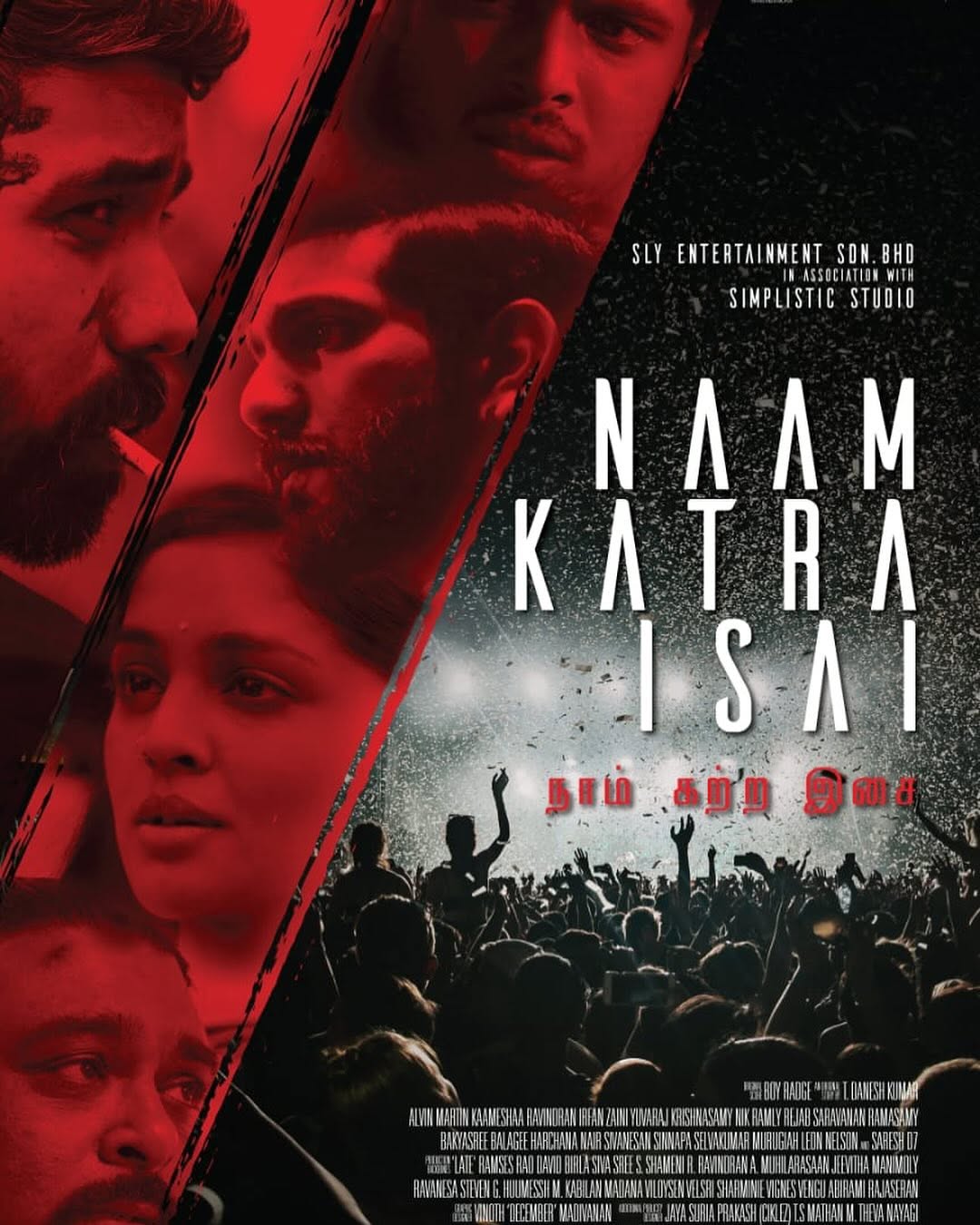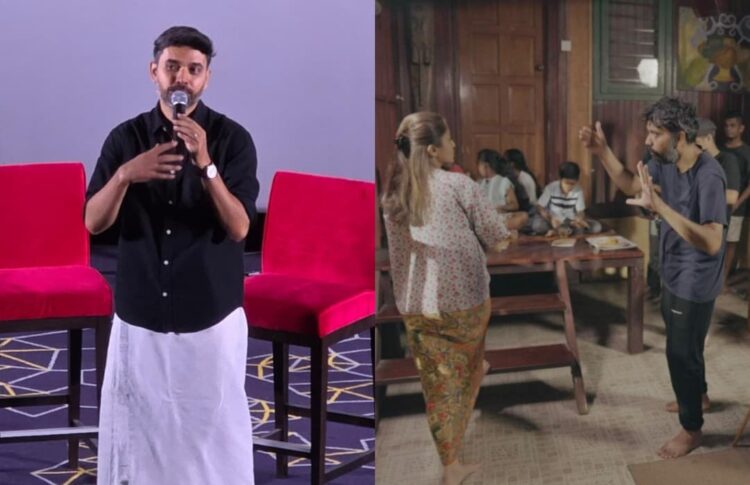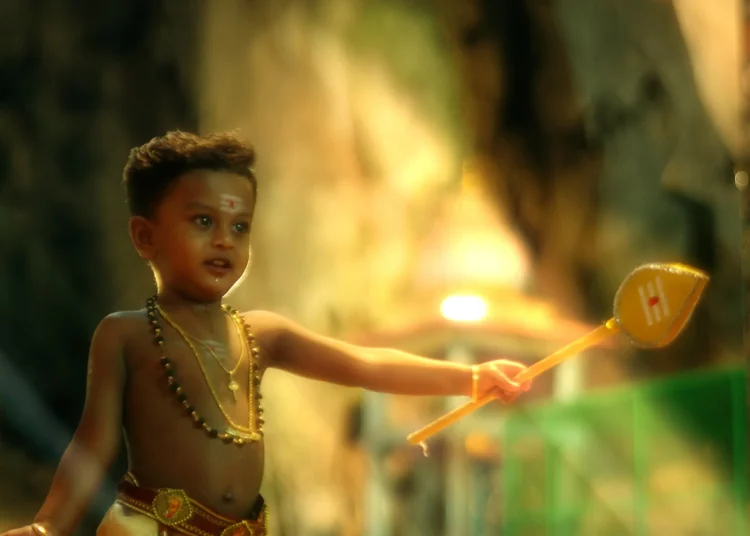Today marks the 68th Independence Day of Malaysia, a moment when people from diverse races and backgrounds come together under one roof to celebrate as Malaysians. Across the nation, the occasion is commemorated with vibrant events, stage performances, and bustling bazaars. This year’s Independence Day carries the theme “Malaysia Madani: Rakyat Disantuni”. The theme is not merely a slogan, but a reflection of the government’s commitment to safeguarding the welfare of the people, in line with the aspirations of Malaysia Madani which upholds the values of unity, justice, and well-being for all.
In a multiracial country, unity among citizens plays a vital role in ensuring the nation’s well-being, growth, and harmony. Such unity can be nurtured through various aspects of life, one of which is cinema. Cinema, as a powerful art form, has the unique ability to influence and inspire audiences. Beyond entertainment, films carry messages, emotions, and lessons that resonate deeply with viewers, often bridging cultural and social divides.
Malaysian Indian Artists Making Waves Across Malay and Chinese Industry
Nowadays, we can see people from various races enjoying Malaysian Tamil movies. For example, the Malaysian film Mirugasirigam attracted Malay audiences, who praised its quality and storytelling. At the same time, many Malaysian Indian artists have successfully crossed over into the Malay and Chinese entertainment industries, proving their versatility and talent.
Recently, Datin Sri Shaila, a well-known producer, ventured into the Malay film industry with her production Balas Balik under her banner, Shaibha Vision. The film performed well and even featured music composed by Shameshan Mani Maran, an acclaimed composer who made his debut in the Malay industry through this project. Likewise, actress Dishaaleny has made her mark in Malaysian Chinese cinema, while the popular actress Pashini has also taken on her first Malay project with the telemovie Kari Kumari.
These achievements reflect a remarkable accomplishment: Indian artists are now shining in the Malay and Chinese entertainment scenes, just as their works in Tamil cinema are being embraced by multiracial audiences. Today, not only do Malays, Chinese, and others watch Tamil films, but many Indians are also enjoying Malay and Chinese films. This mutual appreciation, supported by artists contributing across industries, truly reflects the spirit of cultural exchange and unity in Malaysia.
Blending Cultures on Screen
In this context, Malaysian Tamil cinema stands as a meaningful tool for fostering unity among Malaysians. It not only reflects the stories, struggles, and aspirations of the Tamil community but also offers narratives that highlight shared values, experiences, and emotions that cut across ethnic boundaries. By showcasing themes of love, perseverance, justice, and humanity, Malaysian Tamil films can create common ground where Malaysians of all backgrounds connect and appreciate one another. In doing so, cinema becomes more than just storytelling—it becomes a medium for building understanding, respect, and togetherness in a diverse society.
In line with this spirit of unity, we at Varnam Malaysia would like to highlight the vision of Saresh D7, one of the country’s renowned directors, who is set to cast a Malay artist in the lead role of his upcoming film. Saresh is best known for his critically acclaimed work Naam Katra Isai, which created waves in Malaysian Tamil cinema. Widely regarded as one of the finest creations in the industry, the film centers on the challenges and triumphs faced by true talents. Starring Saresh himself alongside Yuvaraj Krishnasamy, Irfan Zaini, and Alvin Martin in leading roles, Naam Katra Isai was released in November 2023 and went on to win hearts, critical acclaim, and multiple awards.

As widely known, the makers had earlier announced that the project is a trilogy, with Naam Katra Isai serving as the second installment. Now, they are set to release the prequel, titled Irudhi Strike. The film will explore themes of sports and education, offering a fresh narrative within Saresh’s cinematic universe.
About Irudhi Strike – The Prequel of Naam Katra Isai
Produced by Simplistic Studio in association with SLY Entertainment and Shahana Productions, Irudhi Strike is scheduled to hit the screens on 30th October 2025. This time, Saresh expands his creative vision on a larger scale with an even bigger ensemble cast. Leading star Ravin Rao Santheran has joined the project, alongside Saresh himself, Irfan Zaini, Alvin Martin, Jibrail, Komalaa Naidu, and many more talented artists.

A Malay Star Shines in Malaysian Tamil Cinema
Joining the cast is Affie Rania, a Malay artist who takes on a lead role in this film. Saresh had already made waves by featuring several Malay and Chinese stars in Naam Katra Isai, where Nik Ramly also played a significant role. What stood out was the way these actors, despite being part of a Malaysian Tamil film, spoke in Malay on screen, reflecting Malaysia’s true multicultural identity.
Saresh could have easily chosen to feature only Indian actors, giving the film a familiar “Kollywood touch,” as many Malaysian Indians are accustomed to watching Tamil cinema from India. Instead, he made a conscious decision to portray Malaysia as it really is—a harmonious blend of cultures and languages. His art mirrors the realistic world around us, showcasing everyday life in a way that audiences can easily relate to, making the story more authentic and deeply connected to the Malaysian experience.

For Affie Rania, who plays one of the lead roles in Irudhi Strike, this film marks her acting debut. Though it is her first time on the big screen, she is already a well-known influencer, widely recognized for her travelogues. Beyond that, she is also an active sportsperson, involved in rugby, running, and futsal. Given that Irudhi Strike revolves around the themes of sports and education, she was the perfect choice for the role. The fact that a Malay star is making her acting debut through a Malaysian Tamil film is a true reflection of unity and the spirit of succeeding together as Malaysians.
Director Saresh shared that Affie Rania plays one of the most important characters in Irudhi Strike. “This is her first film where she has made her mark as an actress. I’m glad that it happened in our movie. She has done a remarkable job,” he said, expressing his confidence in her performance.
Saresh D7 on Showcasing Malaysia’s True Identity
When asked why he chose to cast non-Indian stars in a Tamil film—rather than featuring only Indian actors, as is common in Kollywood—Saresh explained his vision clearly.
“As Malaysians, no matter where we go, we are always surrounded by people of different races. We have Malay and Chinese friends, neighbours, and colleagues whom we interact with daily. I simply wanted to portray that reality in a natural and authentic way. In Kollywood, it makes sense that most of the stories revolve around Indian characters because of the demographic there. But in Malaysia, our landscape is different. This is a Malaysian film, so it should reflect our surroundings and identity.
Of course, the Indian community will still be highlighted, but by including all races, the story becomes something we can all connect to. It not only reflects who we are as Malaysians but also helps build unity while bridging the Tamil, Malay, and Chinese film industries together.”
He is deeply committed to creating films that reflect our Malaysian identity. Saresh shared that working with a multiracial cast was never a challenge during the filmmaking process. Once he explained the story and script, the actors understood their roles and gave their very best. They dedicated tremendous effort to ensure they delivered strong and authentic performances.
Malaysian Tamil Cinema as a Bridge of Unity
He believes that Malaysian Tamil cinema plays an important role in uniting Malaysians. Over the years, the audience for Tamil films has grown significantly. In the past, many people mainly watched Hindi films, but now more and more Malaysians are going to cinemas to enjoy Tamil movies.
Saresh shared that, in his view, just because a film is in Malaysian Tamil cinema, it does not necessarily have to be spoken entirely in Tamil. In daily life, Malaysians regularly use Malay and English when communicating with others, and he feels it is natural for this reality to be reflected on screen as well. He even pointed out a recent Malay series that included Tamil dialogues, showing how art in Malaysia is increasingly being catered to audiences as a whole.
This, he said, reflects a healthy form of connection and growth. It also creates more opportunities for local talents, as Indian artists can act in Malay or Chinese projects, while Malay and Chinese artists can also be featured in Tamil films. Such collaborations not only strengthen the industry but also bring Malaysians closer together through the power of cinema.
Malaysians should unite in showing their support for Malaysian Tamil cinema. As audiences, we should take the time to explore how the industry has evolved compared to earlier days and appreciate the tremendous effort behind it. The support of viewers is the driving force that fuels artists to keep pushing boundaries and striving for excellence.
In this regard, Saresh has been a consistent supporter of Malaysian Tamil films. He actively shares and promotes every local Tamil release on his Facebook page and makes it a point to never miss watching them in cinemas. Such dedication reflects the spirit of unity that not only strengthens the growth of the industry but also empowers its artists. Ultimately, this shared support becomes a foundation for stronger unity among Malaysians.
As Malaysia celebrates its 68th Independence Day, the spirit of unity and togetherness shines not only in cultural events and festivities but also in the creative world of cinema. Malaysian Tamil films, with their growing influence and inclusive storytelling, have become a powerful medium to bridge communities and showcase the true identity of our multiracial nation.
Directors like Saresh D7, through their vision and commitment, are proving that cinema can transcend language and culture, reflecting the everyday reality of Malaysians while inspiring a deeper sense of connection. With artists from diverse backgrounds stepping into each other’s industries, and audiences embracing films across languages, the Malaysian film industry is evolving into a platform of shared growth and collaboration.
Ultimately, the success of this journey lies in the hands of the people. When Malaysians come together to support local films—be it Tamil, Malay, or Chinese—we not only uplift our artists but also strengthen the unity that defines us as a nation. Just as our Independence Day reminds us of the value of harmony, Malaysian cinema reminds us that our diversity is not a barrier, but a strength to be celebrated on screen and beyond.
All information and images has been provided by Saresh D7.
This is a Varnam Exclusive Feature! Any Reproduction Requires A Credit To Varnam Malaysia!
Follow us on Instagram, Facebook or Telegram for more updates and breaking news.








